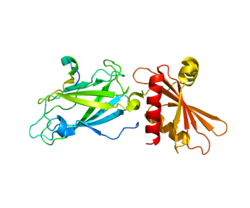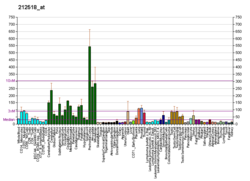| PIP5K1C | |||||||||||||||||||||||||||||||||||||||||||||||||||
|---|---|---|---|---|---|---|---|---|---|---|---|---|---|---|---|---|---|---|---|---|---|---|---|---|---|---|---|---|---|---|---|---|---|---|---|---|---|---|---|---|---|---|---|---|---|---|---|---|---|---|---|
 | |||||||||||||||||||||||||||||||||||||||||||||||||||
| |||||||||||||||||||||||||||||||||||||||||||||||||||
| Identifiers | |||||||||||||||||||||||||||||||||||||||||||||||||||
| Aliases | PIP5K1C, LCCS3, PIP5K-GAMMA, PIP5K1-gamma, PIP5Kgamma, phosphatidylinositol-4-phosphate 5-kinase type 1 gamma | ||||||||||||||||||||||||||||||||||||||||||||||||||
| External IDs | OMIM: 606102; MGI: 1298224; HomoloGene: 69032; GeneCards: PIP5K1C; OMA:PIP5K1C - orthologs | ||||||||||||||||||||||||||||||||||||||||||||||||||
| |||||||||||||||||||||||||||||||||||||||||||||||||||
| |||||||||||||||||||||||||||||||||||||||||||||||||||
| |||||||||||||||||||||||||||||||||||||||||||||||||||
| |||||||||||||||||||||||||||||||||||||||||||||||||||
| Wikidata | |||||||||||||||||||||||||||||||||||||||||||||||||||
| |||||||||||||||||||||||||||||||||||||||||||||||||||
Phosphatidylinositol-4-phosphate 5-kinase type-1 gamma is an enzyme that in humans is encoded by the PIP5K1C gene.
This gene encodes a member of the type I phosphatidylinositol-4-phosphate 5-kinase family of enzymes. A similar protein in mice is found in synapses and focal adhesion plaques, and binds the FERM domain of talin through its C-terminus.
References
- ^ GRCh38: Ensembl release 89: ENSG00000186111 – Ensembl, May 2017
- ^ GRCm38: Ensembl release 89: ENSMUSG00000034902 – Ensembl, May 2017
- "Human PubMed Reference:". National Center for Biotechnology Information, U.S. National Library of Medicine.
- "Mouse PubMed Reference:". National Center for Biotechnology Information, U.S. National Library of Medicine.
- Ishihara H, Shibasaki Y, Kizuki N, Wada T, Yazaki Y, Asano T, Oka Y (May 1998). "Type I phosphatidylinositol-4-phosphate 5-kinases. Cloning of the third isoform and deletion/substitution analysis of members of this novel lipid kinase family". J Biol Chem. 273 (15): 8741–8. doi:10.1074/jbc.273.15.8741. PMID 9535851.
- ^ "Entrez Gene: PIP5K1C phosphatidylinositol-4-phosphate 5-kinase, type I, gamma".
Further reading
- Niiro H, Clark EA (2003). "Branches of the B cell antigen receptor pathway are directed by protein conduits Bam32 and Carma1". Immunity. 19 (5): 637–40. doi:10.1016/S1074-7613(03)00303-0. PMID 14614850.
- Carpenter CL (2004). "Btk-dependent regulation of phosphoinositide synthesis". Biochem. Soc. Trans. 32 (Pt 2): 326–9. doi:10.1042/BST0320326. PMID 15046600.
- Nagase T, Ishikawa K, Miyajima N, et al. (1998). "Prediction of the coding sequences of unidentified human genes. IX. The complete sequences of 100 new cDNA clones from brain which can code for large proteins in vitro". DNA Res. 5 (1): 31–9. doi:10.1093/dnares/5.1.31. PMID 9628581.
- Gotthardt M, Trommsdorff M, Nevitt MF, et al. (2000). "Interactions of the low density lipoprotein receptor gene family with cytosolic adaptor and scaffold proteins suggest diverse biological functions in cellular communication and signal transduction". J. Biol. Chem. 275 (33): 25616–24. doi:10.1074/jbc.M000955200. PMID 10827173.
- Wenk MR, Pellegrini L, Klenchin VA, et al. (2001). "PIP kinase Igamma is the major PI(4,5)P(2) synthesizing enzyme at the synapse". Neuron. 32 (1): 79–88. doi:10.1016/S0896-6273(01)00456-1. PMID 11604140. S2CID 9739320.
- Di Paolo G, Pellegrini L, Letinic K, et al. (2002). "Recruitment and regulation of phosphatidylinositol phosphate kinase type 1 gamma by the FERM domain of talin". Nature. 420 (6911): 85–9. Bibcode:2002Natur.420...85D. doi:10.1038/nature01147. PMID 12422219. S2CID 1746983.
- Ling K, Doughman RL, Firestone AJ, et al. (2002). "Type I gamma phosphatidylinositol phosphate kinase targets and regulates focal adhesions". Nature. 420 (6911): 89–93. Bibcode:2002Natur.420...89L. doi:10.1038/nature01082. PMID 12422220. S2CID 4301885.
- Strausberg RL, Feingold EA, Grouse LH, et al. (2003). "Generation and initial analysis of more than 15,000 full-length human and mouse cDNA sequences". Proc. Natl. Acad. Sci. U.S.A. 99 (26): 16899–903. Bibcode:2002PNAS...9916899M. doi:10.1073/pnas.242603899. PMC 139241. PMID 12477932.
- Doughman RL, Firestone AJ, Wojtasiak ML, et al. (2003). "Membrane ruffling requires coordination between type Ialpha phosphatidylinositol phosphate kinase and Rac signaling". J. Biol. Chem. 278 (25): 23036–45. doi:10.1074/jbc.M211397200. PMID 12682053.
- Krauss M, Kinuta M, Wenk MR, et al. (2003). "ARF6 stimulates clathrin/AP-2 recruitment to synaptic membranes by activating phosphatidylinositol phosphate kinase type Igamma". J. Cell Biol. 162 (1): 113–24. doi:10.1083/jcb.200301006. PMC 2172713. PMID 12847086.
- Chang JD, Field SJ, Rameh LE, et al. (2004). "Identification and characterization of a phosphoinositide phosphate kinase homolog". J. Biol. Chem. 279 (12): 11672–9. doi:10.1074/jbc.M309721200. PMID 14701839.
- Grimwood J, Gordon LA, Olsen A, et al. (2004). "The DNA sequence and biology of human chromosome 19". Nature. 428 (6982): 529–35. Bibcode:2004Natur.428..529G. doi:10.1038/nature02399. PMID 15057824.
- Wang YJ, Li WH, Wang J, et al. (2005). "Critical role of PIP5KI{gamma}87 in InsP3-mediated Ca(2+) signaling". J. Cell Biol. 167 (6): 1005–10. doi:10.1083/jcb.200408008. PMC 2172614. PMID 15611330.
- Bairstow SF, Ling K, Su X, et al. (2006). "Type Igamma661 phosphatidylinositol phosphate kinase directly interacts with AP2 and regulates endocytosis". J. Biol. Chem. 281 (29): 20632–42. doi:10.1074/jbc.M601465200. PMID 16707488.
- Krauss M, Kukhtina V, Pechstein A, Haucke V (2006). "Stimulation of phosphatidylinositol kinase type I-mediated phosphatidylinositol (4,5)-bisphosphate synthesis by AP-2mu-cargo complexes". Proc. Natl. Acad. Sci. U.S.A. 103 (32): 11934–9. Bibcode:2006PNAS..10311934K. doi:10.1073/pnas.0510306103. PMC 1567676. PMID 16880396.
- Auvinen E, Kivi N, Vaheri A (2007). "Regulation of ezrin localization by Rac1 and PIPK in human epithelial cells". Exp. Cell Res. 313 (4): 824–33. doi:10.1016/j.yexcr.2006.12.002. PMID 17229424.
- Ling K, Bairstow SF, Carbonara C, et al. (2007). "Type Igamma phosphatidylinositol phosphate kinase modulates adherens junction and E-cadherin trafficking via a direct interaction with mu 1B adaptin". J. Cell Biol. 176 (3): 343–53. doi:10.1083/jcb.200606023. PMC 2063960. PMID 17261850.




